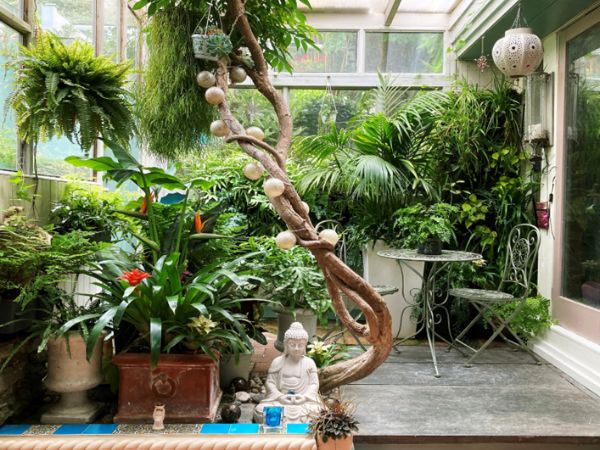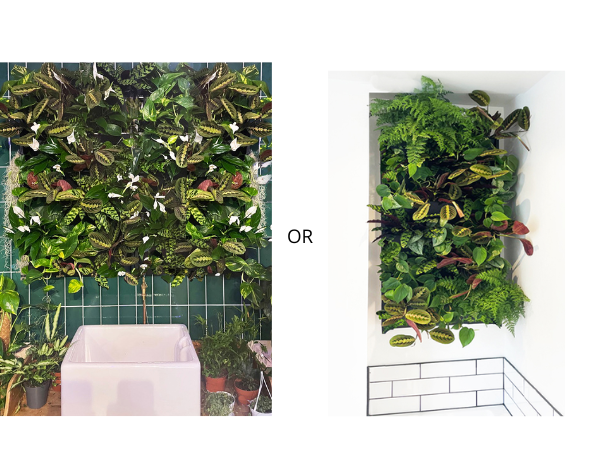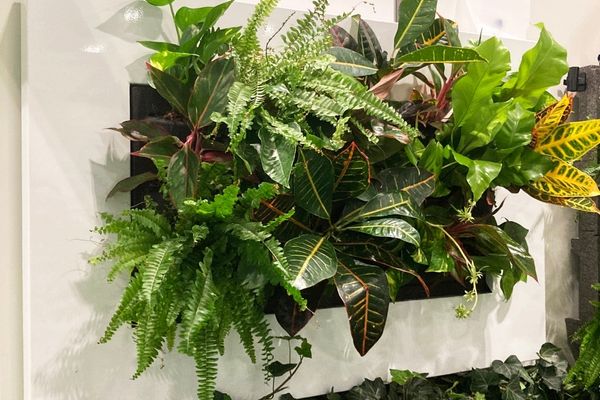
A Biophilic Future
Our recent past has left many people with a deeply disturbed sense of apocalyptic inevitability. A future based on a deeper connection with nature could be our salvation, at both an individual level, as well as hopefully inducing a change in the delusional thinking of our world leaders, that have clearly lost the true value of our symbiotic role in the web of life that has been intrinsic to the evolution of our species.
The term Biophilia was first used by the Psychologist, Erich Fromm in 1964, when he described it as “the passionate love of life and all that is alive”. Biophilia as a concept became more well known in 1984 following the publication of the book ‘Biophilia’ by Edward O Wilson. Wilson defined it as “the urge to affiliate with other forms of life”. He went on to observe how, through the migration to urban environments, it has led to a disconnection with the natural world. Biophilia is now increasingly regarded with importance to our health and well-being in the built environment. Human divergence from the natural world occurred in parallel with technological developments in the 19th and 20th centuries, fundamentally changing human interactions with nature.
Human’s innate attraction to nature and natural processes comes from our evolutionary past. Humans have a deeply engrained love of nature, which is an intuitive and a natural drive imprinted into our DNA. According to Anthropologist and Humanist Dr Alice Roberts, one of the theories explaining why we prefer the natural world is that for millions of years we were hunter gatherers and farmers. Through thousands of years living as agrarian societies we developed an innate connection to the natural world, helping us to locate the most fertile land to cultivate food. “Our evolutionary home is nature and this is where we belong.”
It is now accepted by the scientific and medical community that spending time immersed in nature is good for our mental wellbeing. Research has shown that more than 90% of people would imagine themselves in a natural setting when asked to think of a place where they felt relaxed and calm. Just meditate on visions of a dappled forest glade filled with birdsong, or sunset over a meadow filled with wild flowers and a sense of euphoria will transform your state of mind. Being around nature makes us feel good. Our physical and mental wellbeing depends on us spending time in a natural environment and this effects our general wellbeing.
The fact that we spend about 85% of our time indoors means that most of us are deprived of exposure to nature. In Japan, the benefits of immersing yourself in nature is known as shinrin-yoku, or ‘forest bathing’. In the 1980’s it was developed by the Japanese as a form ‘plant therapy practice’ and has become an important component of preventative health care and healing in Japanese medicine. They found that being immersed in nature creates calming neuro-psychological effects through changes in the nervous system, reducing the stress hormone cortisol and boosting the immune system, and has led to reductions in stress, anger, anxiety, depression and sleeplessness amongst the participants and improved mental clarity
The underlying principles underpinning shinrin-yoku can be incorporated into Biophilic Design, which aims to improve the spaces that we live and work in today. By incorporating direct or indirect elements of nature into our environment there are enormous benefits to our health and well-being benefits of shinrin-yoku. Although we are blessed to live in the Rame peninsula, it is not a practical reality for most people to daily immerse themselves in the nearest field, woodland river, beach or sea. However, using Biophilic Design principles there are some simple, yet very effective ways of incorporating elements of nature into our home and work environments.
Biophilic design is often seen as an esoteric indulgence of the few, but I believe that we can bring the benefits to far wider groups of people. Once a home or workspace is brought back to life with simple and accessible aspects of nature, it immediately improves one’s state of mind, lifts the spirit and induces a sense of wellbeing.
If you’ve ever been stuck in a room or work space with no windows, artificial light, and air-conditioning and wondered why you felt un-motivated and lethargic, you’ll understand just how important biophilia can help. Studies by Dr Craig Knight, from Exeter University, showed that employees were 15% more productive when sparse workplaces are filled with just a few houseplants. He found that by introducing just one plant per square metre employee performance on memory retention and other basic tests improved substantially.
Bring Nature into Your Home or Workspace
Biophilic design incorporates living plants, and a range of natural materials such as wood, stone and sand together with earthy tones like brown, green, and light blue.
Natural elements that invoke the movement and warmth of the environment have an impact as visual features. Moreover, they promote emotional stimulation and reduce stress in high-pressure environments.

A garden room in your home, shared apartment community space or work environment would be the ultimate Biophilic environment. However, if space is a limiting factor, there are simpler equally effective alternatives, such as the installation of a living wall in a kitchen or bathroom.

Even a living picture constructed from recycled materials can be effective in inducing the benefits of Biophilia. Studies have shown that the mere sight of greenery has a positive effect on wellbeing through the neuro-endocrine and immunological system.

A Biophilic future offers the possibility of humanity living in a healthy relationship with the whole of our biosphere. It is time to allow our choices and actions be guided by that which we love and that which is worth living for.
Through a connection and subsequent caring for life, living systems, and our natural world, there is real hope for an optimistic direction to guide our destiny to a world of hope.
Popular Articles
- How to Protect Plants from Frost Damage
- Help save our threatened Peatlands this Easter
- Plant Blindness and Why It's a Real Problem
- The Amazing Benefits of Terracotta Pots and Planters
- Waterwise gardening for a changing climate
- Kew Gardens and East of Eden Plants Lead the way towards Waterwise Gardening in a Changing Climate
- Biochar: A Sustainable Alternative
- Funding Available for Schools Impacted by Flooding
- A Tree is Not Just for Christmas
- A Biophilic Future
Topics
About The Authors
Your name *



























